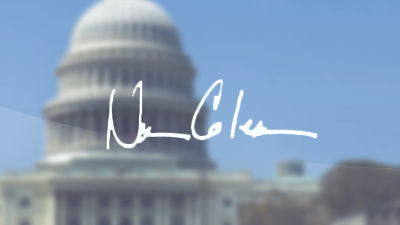Notes from Norm: Open the Ideas Store for Millennials
With fewer than 35 days before what will be an historic election for President and Congress, it’s not too early to start talking about the next election.
(Before you start throwing things in my general direction it is important that we live in a country where the Halloween decorations started being put on store shelves right after Easter Sunday!)
More specifically, it’s not too early for conservatives to begin a conversation about how to engage a new generation of voters in advance of the next election and every election beyond.
Demographic shifts in America are becoming tectonic in nature. These shifts are creating massive changes in how Americans view their politicians, political parties, public and private institutions and government.
Even more expansively, it is changing how the American people see their individual place in our country and how they see America’s place in the world.
One demographic, in particular, has the potential to be a long-term game changer for conservatives in America.
In much the same way my Baby Boomer generation changed America for decades, Millennials are shattering the traditional views of and about America for decades to come.
And, in much the same way generations viewed Baby Boomers and their impatient demand for change with suspicion, frustration, anger and confusion – Baby Boomers are now viewing Millennials in many of the same ways.
In the 1960s, my generation were called radicals, hippies, lazy, disrespectful, self-centered and lacking ambition.
Presidents, Vice Presidents and every form of local, state and federal governments were so threatened by our very existence they organized efforts to infiltrate our student movements. Our protests against the Vietnam War earned us violent reprisals. Our music was condemned. The lifestyle we chose was considered deviant.
In short, because of the Baby Boomer generation it was feared that America itself would soon cease to exist.
Sound familiar?
While Millennials may lack some of the dramatic events of the Vietnam Era, there is no doubt that some of the events facing them today are of no less importance and impactful to their future and the future of America.
Economic inequality and racial inequality are not some vague threats to our social and cultural fabric in America. Along with a criminal justice system that is in desperate need of reform and a nearly $20 trillion national debt, the burden of my generation’s excesses are being put firmly around the shoulders of the Millennial generation.
An education system that doesn’t meet the needs of far too many of our children and an immigration system that is broken and creates distrust and anger among communities will not fix themselves.
A growing global instability brought on by a failure of American leadership the past eight years and a capable and well-financed terror threat that has gotten bolder may well be the most significant challenge to the safety and security of the world that Millennials will face in the decades to come.
Which is where a rising voice within the conservative movement, Kristen Soltis Anderson, is one that should be listened to by conservatives.
The author of the book, The Selfie Vote: Where Millennials are Leading America (And How Republicans Can Keep Up), Soltis Anderson makes it clear that conservatives haven’t yet lost the Millennial generation but they have clearly not yet won them, either.
In a 2015 interview, Soltis Anderson asked young voters across the country to share what words come to mind when they thought of the Republican party.
According to her, what came back were words like “…close-minded, racist, intolerant, old-fashioned, stuck in the 1950s.”
She went on further to say, “I don’t know if Republicans have done enough, recently, to combat this image.”
In a speech before the Ethics and Public Policy Center, Soltis Anderson points out that “Someone who was born in 1998 who turns just in time for the 2016 presidential election, will, based on today’s average life expectancy, continue to cast ballots until the presidential election of 2076. That’s a lot of votes. And those votes shouldn’t be taken for granted.”
Democrats, who believe that the further liberal they move the more likely they are to gain the support of young people, have done little to take advantage of the conservative movements failure to impress Millennials.
Both political parties have made electoral assumptions about Millennials that they make at their own risk.
Millennials don’t hate government, nor do they love it. On the contrary. They see government as a potential partner for change. Yet, if government is incapable of making change, Millennials will seek out the private sector to make the change possible.
On issues of equality and inequality, Millennials aren’t as interested in the historical past as they are in the historical future and focusing on eliminating discrimination and bias and anything else that robs individuals of their right to the pursuit of life, liberty and happiness.
Millennials want government to work. To be effective. Make a difference.
Conservatives haven’t done a particularly good job of making the case to Millennials that this is exactly what we want, too. We have allowed ourselves to get so focused on what divides each of us rather than what it is that can bring us together to build a stronger, more prosperous America.
Soltis Anderson makes it clear that there’s a lot of work to be done for conservatives to earn the trust of Millennials.
The fact is, conservative values and beliefs are not in conflict with those of Millennials.
Unfortunately, in this election cycle those values and beliefs have taken back stage to the drama and personality of a presidential election.
Come Election Day, it will be time to put those values and beliefs back on the store shelves for Millennials to see.
The marketplace of ideas will reopen and it’s time for conservatives to make the sale.


